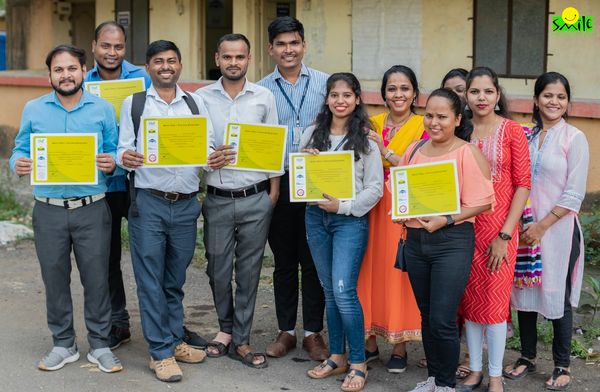“CSR isn’t a particular programme, it’s what we do every day, maximising positive impact and minimising negative impact.”
Responsible Business Summit (2013)
India’s evolving corporate ecosystem is increasingly aligning business goals with social impact. One prominent avenue is Corporate Social Responsibility (CSR) directed at youth skill development.
Imagine a scenario: a small tech company collaborates with a nonprofit to offer digital skills training to underprivileged youth. Employees contribute equipment and mentor participants in coding, design, and software tools. This initiative boosts community development and enhances employee engagement and leadership—showing how CSR can be a two-way benefit.
This is not an exception. Since CSR became mandatory in India under the Companies Act, 2013, businesses are now required to spend 2% of their average net profits on activities contributing to national development. As a result, CSR funding has become a powerful catalyst for addressing India’s pressing employment challenges.
Why CSR and Skilling Go Hand in Hand
With nearly 65% of India’s population under the age of 35, the country has a unique opportunity to turn its demographic advantage into economic strength. However, rising unemployment among youth highlights a clear mismatch between available jobs and the employability of the workforce.
Merely creating jobs is not enough—building employable skills is essential. That’s where skilling programmes supported through CSR become a strategic solution.
Types of CSR Activities Allowed in India
As per the Companies Act, CSR activities in India may include:
- Skill development and livelihood promotion
- Building hostels, daycare centres, and shelters
- Promoting education and public health
- Supporting women’s safety, sanitation, and hygiene
- Training for marginalised and underserved groups
Skill development cuts across several of these categories, making it one of the most flexible and impactful CSR focus areas.
How Skill Development Aligns with Corporate and National Goals
Corporates investing in skilling programmes contribute directly to long-term national growth by:
- Creating a future-ready workforce
- Reducing the employability gap
- Supporting economic inclusion in underserved communities
- Aligning with Sustainable Development Goals (SDGs)
Companies possess resources—like digital tools, physical infrastructure, and experienced professionals—that can multiply the effectiveness of skilling efforts.
Business Advantages of Investing in Skill Development
- Lower hiring costs by training potential candidates
- Increased productivity from better-skilled employees
- Improved brand reputation through social impact
- Stronger supply chain ecosystems built through skilling MSMEs
When companies work with experienced nonprofits, such as those conducting grassroots training in digital, retail, or healthcare skills, both the organisation and the community benefit.
Example: Smile Foundation’s Skilling Model
Smile Foundation’s STeP (Smile Twin e-Learning Programme) is designed to equip underprivileged youth with job-ready skills. It combines industry-relevant training with soft skills and placement assistance, creating a pipeline of capable young professionals.
The programme focuses on high-demand sectors like IT, retail, hospitality, and health services—bridging the gap between classroom education and real-world employment.
Companies that partner with such initiatives not only fulfil their CSR obligations but also build long-term talent pipelines aligned with market needs.
Final Thoughts
India’s youth population offers immense potential. Strategic CSR investment in skill development programmes ensures that this potential is harnessed effectively—for communities, industries, and the country.
For corporates, supporting skill development means contributing to inclusive economic growth while addressing their own human resource needs in a sustainable way. It’s a true win-win.










